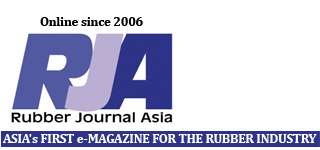Tyre maker Nexen officially opened its new plant in Changnyeong, Korea. Modern and streamlined factory to produce environmentally-friendly tyres. Tyres for car, SUV and light commercial vehicles will be manufactured at this facility. The current, environmentally-friendly and fuel-saving Nexen N’Blue Series as well as future, new “green” tyres, will also be produced there. The high-tech facility has been conceived as an environmentally-friendly factory in all areas. Additionally, this factory has been chosen by Nexen to develop and manufacture special tyres for future hybrid and electric vehicles.
“We have succeeded here, in Changnyeong, in building not just a tyre plant, but a comprehensive and industrial complex equipped for the future of advanced tyre production. By 2017, when the plant is complete, Nexen will have invested a total EUR810 million. This is an important step on our way to becoming a global tyre manufacturer,” emphasises Nexen Tyre CEO Hyunbong Lee, present at the festivities.
From 2018, Nexen Tyre will have capacity to produce 60,000 tyres per day in Changnyeong. Together with the plants in Yangsan, Korea and the Nexen factory in China, this will give an annual potential volume of 60 million units.
The current factories, one in Yangsan – the headquarters of the Nexen Tyre Corporation – and another in China (Qingdao), have running capacity for the current production 25 million units (18 million in Korea and 7 million in China). The foundations for this third, new factory in Korea were laid in June 2010.
Together with the tyre manufacturing plants, the industrial complex which covers all processes surrounding tyre production, from delivery and storage of raw materials to logistics and quality control, occupies an area of over 495,000 sq m. Around 2,000 workers are scheduled to be employed at the factory by 2017. The Changnyeong factory was planned taking into account the necessity for environmentally-friendly production. There are plans for 2.6 million tyres to be produced in the first year alone. This forecast is set to increase to 6 million units by 2013 and 8 million by 2015. The long term-production capacity is for 20 million tyres.
